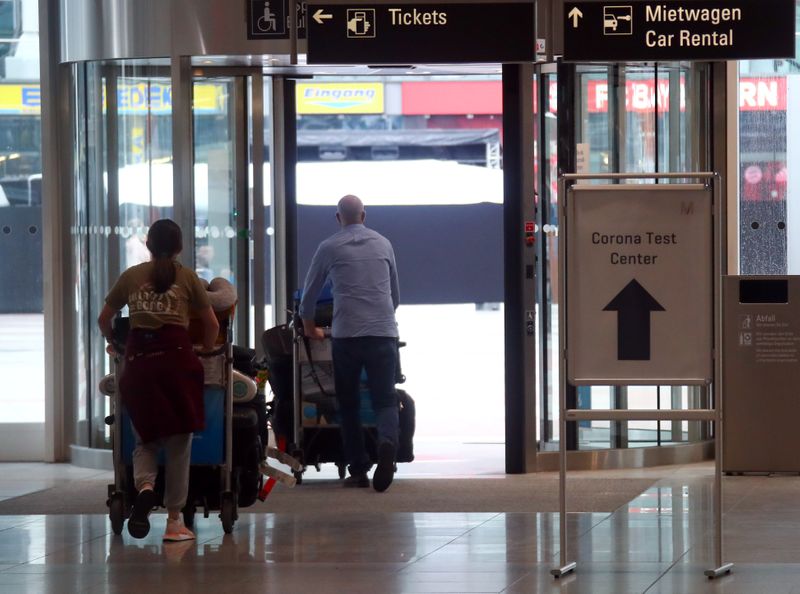BERLIN (Reuters) -Germany is classifying Spain and the Netherlands as areas with a high incidence of coronavirus, which means that unvaccinated travellers returning from those countries will have to quarantine for at least five days.
The move coincides with the summer school break in Germany, when many families vacation on the sunny Mediterranean beaches of Spain or the North Sea coast of the Netherlands.
While nearly half of Germans are exempt from the quarantine rules because they have had two COVID-19 shots, only about 2% of those under 18 are fully vaccinated, a potential headache for families travelling with children and teenagers.
The move is likely to be greeted by dismay by Spain’s vast tourism industry, though the country has seen rapid growth in the number of diagnosed COVID-19 cases over the past few weeks. The number jumped five-fold between mid-June and mid-July.
Spain’s Tourism Ministry on Friday said it would not comment on Germany’s decision. Spanish officials have said that with progress made in vaccinating the population and hospital numbers being kept under control, case numbers are no longer the right way to assess the epidemiological situation.
Spain recorded 624 new COVID-19 cases per 100,000 people in the 14 days through the end of last week, while the Netherlands had 670 cases, according to the European Centre for Disease Prevention and Control. That compares with 17 in Germany.
The German quarantine requirement for travellers from high-incidence regions does not apply to travellers who had COVID-19 in the past six months.
The changes for Spain and the Netherlands take effect from next Tuesday.
(Reporting by Maria Sheahan and Emma Pinedo Gonzalez; Editing by Douglas Busvine, Toby Chopra and Paul Simao)

























